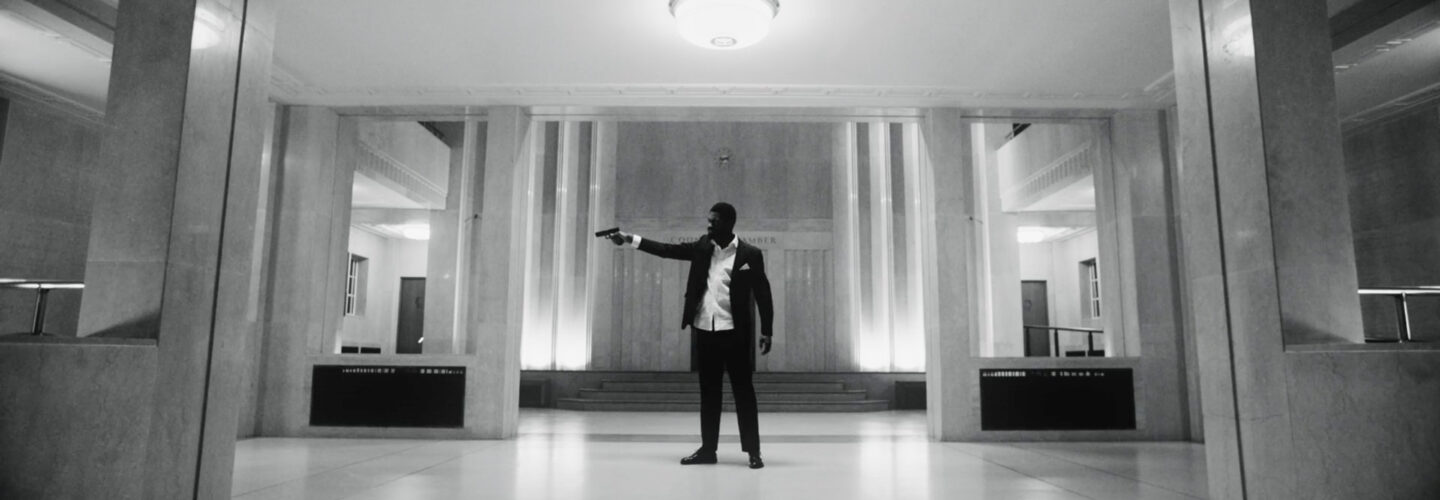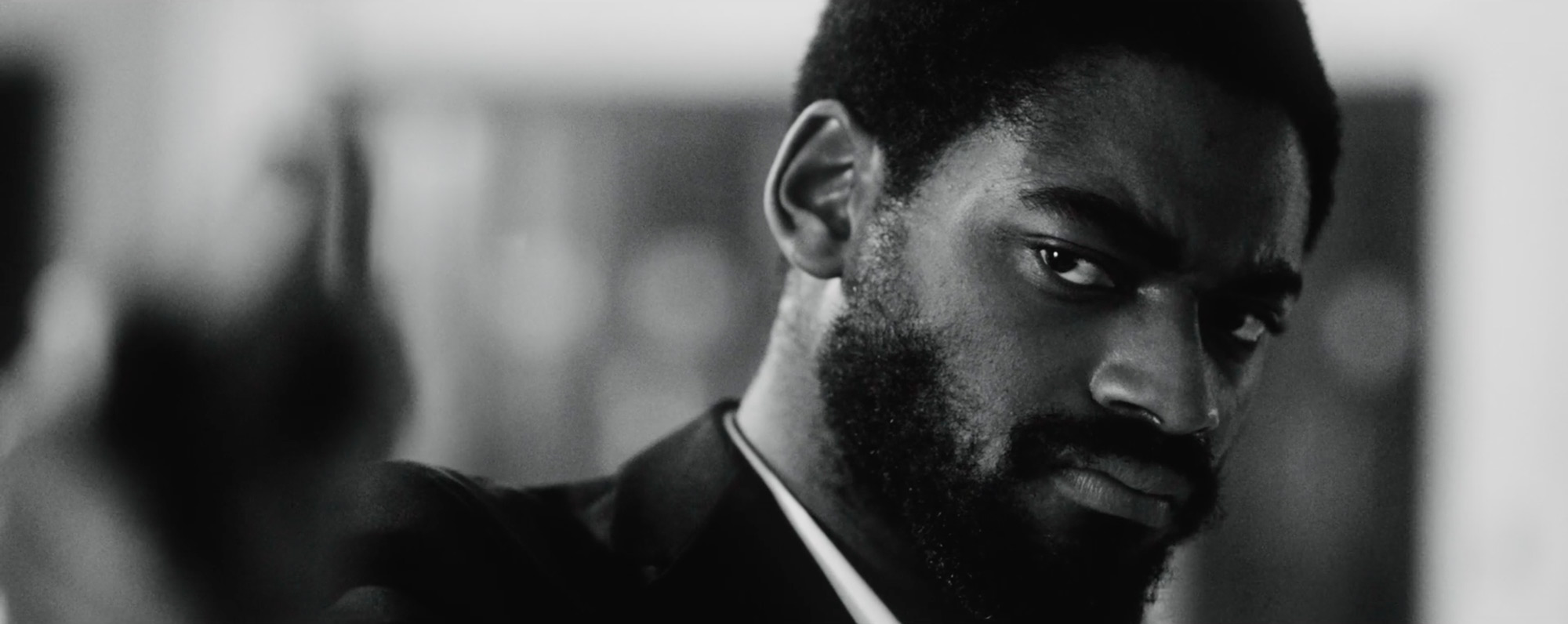
A sister project to his wordless expression through movement short Without a Word, Director Youness Benali makes a welcome return to DN with the substantially wordier polemic, The Composer. I caught up with Youness to delve into the creation and intentions behind this potent declaration, which channels the frustrations, confusion and hurt of the black experience into its taut monochrome structure.
What set you on the road to making The Composer?
After I had finished Without a Word, I felt that I had to create a film where I went to the other extreme, which was to create a film that would mainly use sound, in this case a monologue, to portray similar types of feelings of misplacement and stereotypes. The Composer is really a take on what we as human beings tend to do to other people that we don’t fully know or understand, and that is to stereotype. Most of us do it to an extent, and I really feel that it’s important that we understand why we do it, and to realise that behind the stereotype-persona that we create for other people in our own heads, is a person, just like you and me. A person with dreams, goals and a desire to live.
This film was made in association with The Sweet Shop, how did that partnership come about?
I’m signed with The Sweet Shop, for music videos and commercial representation, and after I’d done Without A Word, I told them about this new film and they were really keen to help me do it. I really have to thank Morgan, Spencer and Paul and everyone globally at The Sweet Shop for believing in me and for continuing in helping me nurture my own unique voice.
Sean Richards-Mulzac’s monologue makes for a transfixing watch even as it bombards us with a barrage of uncomfortable thoughts and considerations, what brought him to the project?
I was looking for Sean without even knowing that I was. I had gone through a casting process, without finding anyone that I thought would fit the part. It wasn’t before I spoke to Darran Bragg the DP, who had just worked with Sean on a commercial, that he thought I might like the presence and aura that Sean brings on set. So I contacted Sean’s agent, told her about the project and then it all was set in motion, there was no turning back from there.
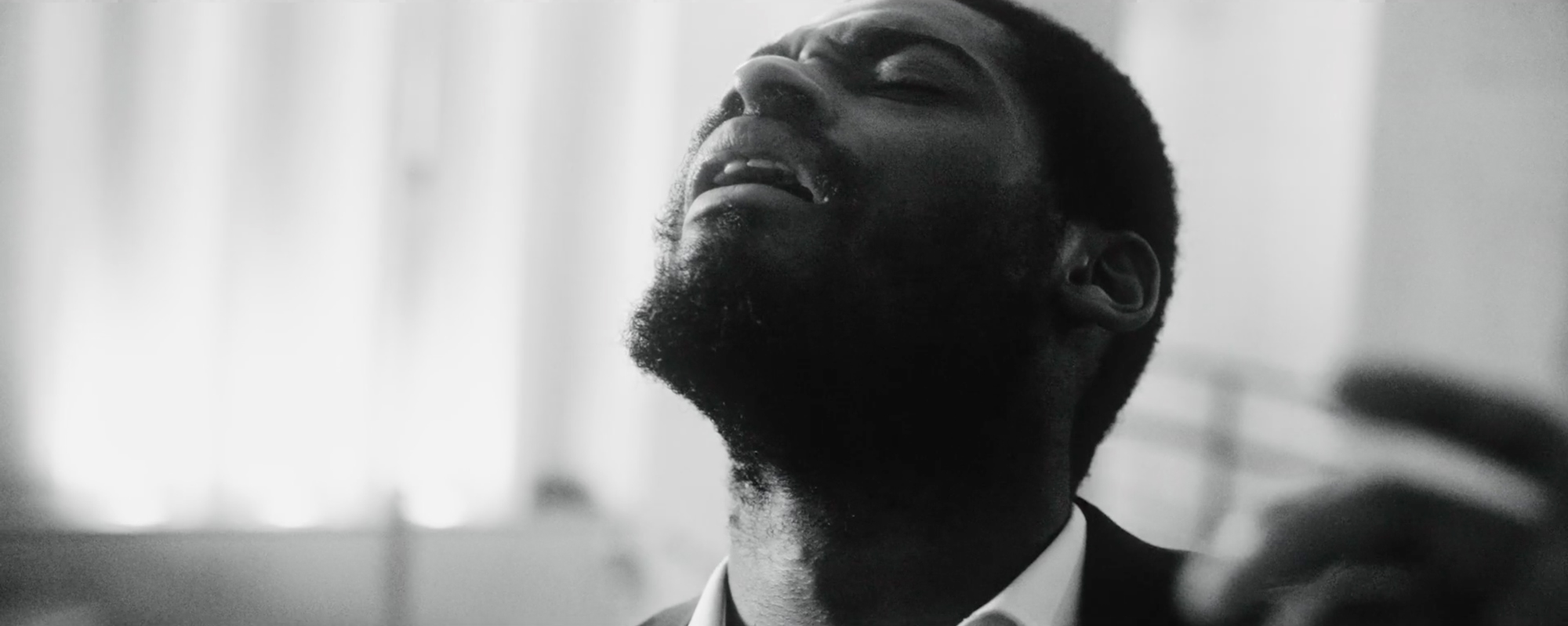
Was the monologue’s content fully in place before you cast Sean? How was it refined and sharpened as the project progressed?
The script was done before Sean entered the picture. However, after we had a few rehearsals I realised that my writing had to be adjusted to fit Sean and the way he excels as an actor. There were a lot of tweaks and rehearsal sessions, it was a long piece of monologue to remember, and I even changed bits during the shoot, so massive kudos to Sean for his willingness and quickness to adapt to everything that was thrown at him.
The space in which the film unfolds has the stately feel of a gallery, what attracted you to this location for the film’s setting?
The location is actually a town hall that has now been turned into a University. Me and Cheyenne Conway (our producer) were on a hunt for something grand, something that would juxtapose this whole scenario that would eventually unfold before our eyes. And to an extent, a place where a man like Sean, stereo-typically wouldn’t fit in.
As soon as we pushed through the doors at Dagenham Town Hall, we all knew that, this was the location we would use as our back drop. We were the last people to film there before they turned the space into a University.
I think I’m drawn to the concept of showing people that just because we think something is in one way or anther, it doesn’t necessarily make it correct.
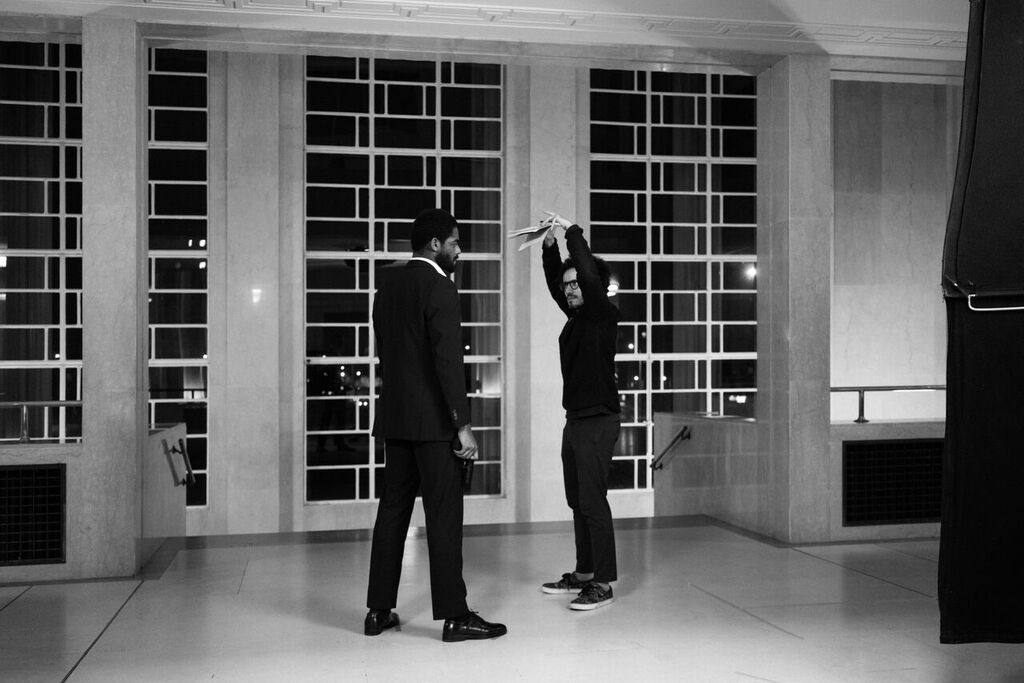

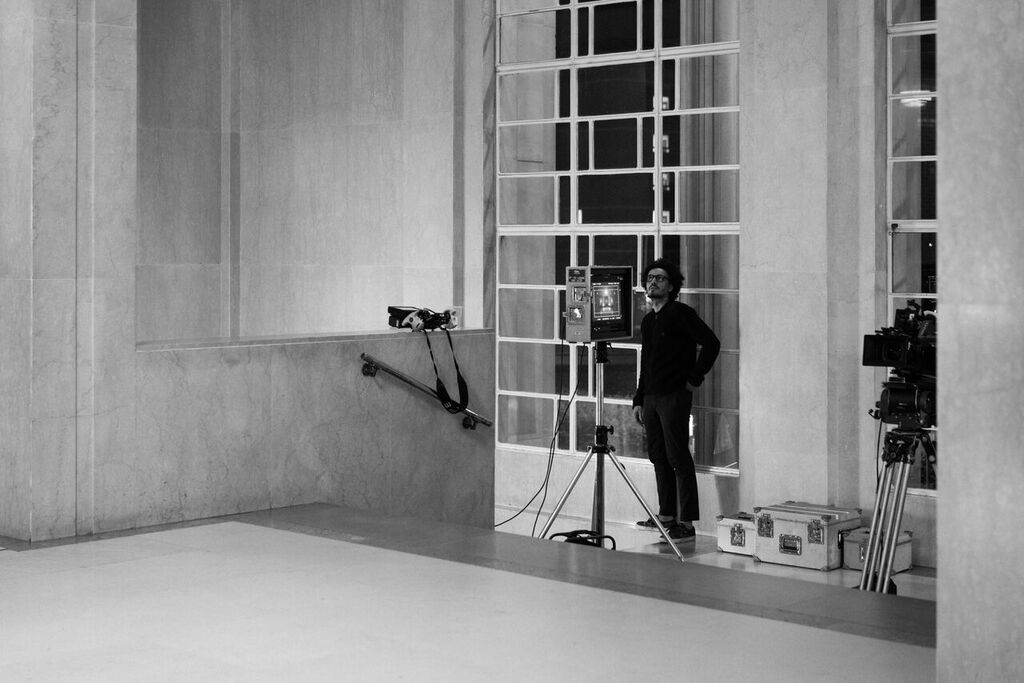


What made you choose a black and white aesthetic?
This film lives in the same universe as Without A Word and I wanted to continue to create a film in the same vein, in that same hard hitting black and white space, that we sometimes find ourselves in.
The challenging of preconceptions is something which has permeated your work as far back as the Man + films. What do you see your role and that of your films as within these often contentious subjects? Is it an area you plan to tackle again?
I think I’m drawn to the concept of showing people that just because we think something is in one way or anther, it doesn’t necessarily make it correct. What is correct for me can be completely incorrect for you – and sometimes, more often than not, we judge people on this ‘correctness’ – I find this fascinating. I used to study Social Anthropology and the one thing that really stuck with me was that we can never apply our own thinking on someone else. Because for them those thoughts might be completely foreign – this is where I think so much that is wrong with our world stems from, our inability to see and judge people from their point of view rather than our own.
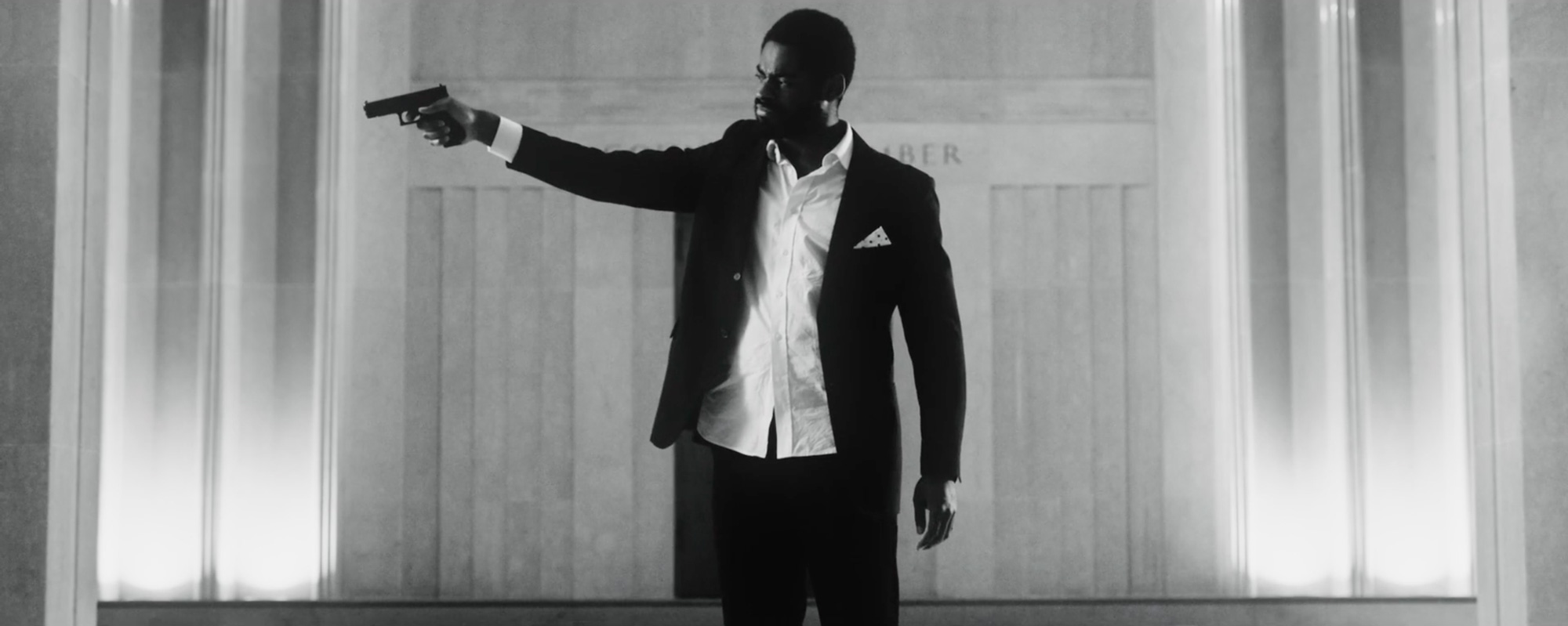
My next short film will be set in Morocco, it will be in colour, and it will in one way or another challenge the viewer’s preconception of what they’re actually seeing.
And finally, I’ve noticed that some of your previous pieces have taken their leave from the internet, what’s the deal with that?
I was actually looking for some film I did a couple of years ago when I was still at Royal College, but I couldn’t find it. I think I must have deactivated that Vimeo account and it now lives in their archives. I think at some point, I’ll take more videos offline. We progress, we change and sometimes people are more interested in the final outcome than the journey that took you there.

